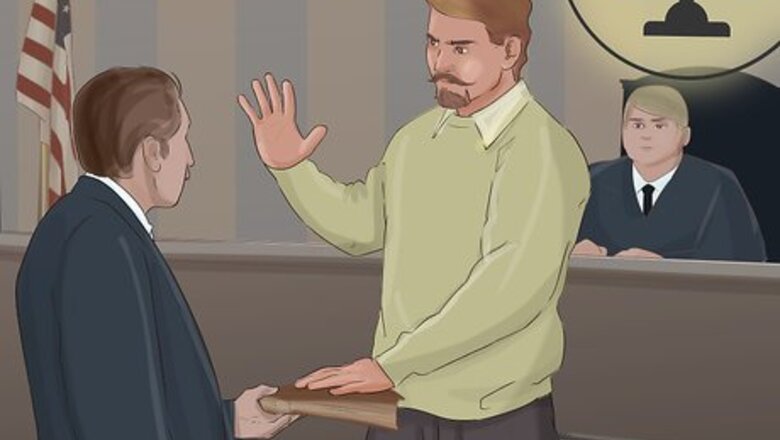
views
X
Research source
Building Your Case
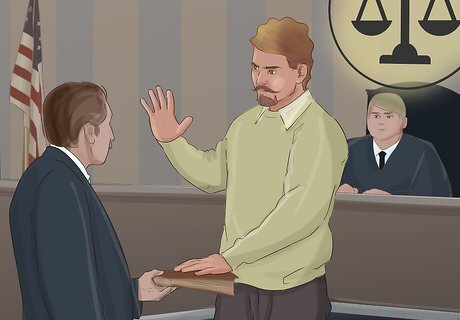
Verify the statement was made under oath. If the person who made the statement was testifying in court, or before a grand jury, the statement was made under oath. Anything written on a government document is also under oath if the person signed the document. Generally, government forms you have to fill out will contain a statement at the bottom that your signature is verification that the information you provided is true and accurate to the best of your knowledge. False statements on a form with that statement could lead to perjury charges. Someone doesn't commit perjury if they make their statement at any other time. For example, if someone is arrested and is talking to a police officer, they are not under oath. They can still get in trouble for lying to law enforcement, but that's a different crime.
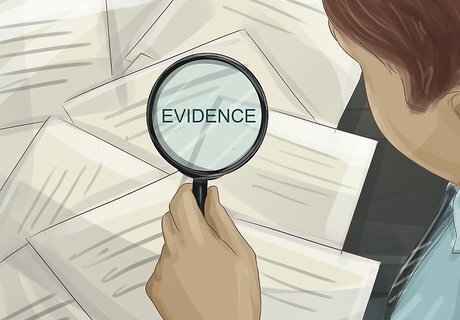
Find evidence that the statement was false. Only false statements run the risk of perjury charges. Look for a statement of fact, and keep in mind that people's perceptions of a situation can differ. False statements can be objectively proven true or false. For example, if a government form asks for your monthly income, that is a fact. If you say you make $2,000 a month when you actually make $3,500 a month, that would be a false statement. Check stubs or bank statements could be used to prove that this statement is false.
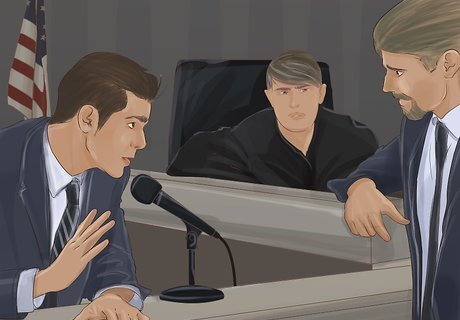
Distinguish between false and inconsistent statements. Just because someone makes conflicting statements about something, they're not necessarily guilty of perjury. Sometimes your perception or recollection of an event will change over time. For example, a witness to a fight may say that Joe punched Craig first. Later at trial, the same witness may testify that Craig punched Joe first. Their inconsistency makes them a less reliable witness, but it doesn't necessarily mean they were lying in either instance.

Examine the witness's knowledge and intent. Merely making a false statement does not rise to the level of perjury. The person must have known the statement was false when they made it. They also must have made the false statement intentionally, because they wanted to deceive or mislead a government official, or a judge or jury. This can be the most difficult part of a perjury case to prove, and it's the reason there are so few convictions. Look for specific evidence that the person had to have known the statement was false. If the person would benefit from lying, you may be able to infer that they intended to mislead so they could reap those benefits. For example, suppose someone is filling out an application for food stamps. They know that they don't qualify on their own, but would if they had children. They provide information for their sister's children, claiming them as their own. As a result, they get food stamps. They clearly knew those weren't their children, and that they would get the benefit for lying about them.
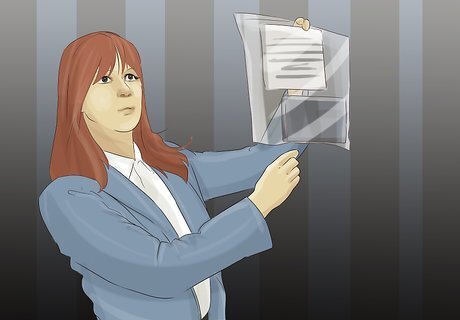
Look at the circumstances surrounding the statement. In most cases, you won't be able to find direct evidence of someone's knowledge and intent. Rather, you'll have to build your case based on circumstantial evidence. For example, a husband may lie about his income on court documents during a divorce. He claims he made a mistake and forgot about some income he received for odd jobs. But if you found texts he made to a friend where he said "I'm not going to include this money I made for odd jobs, because that was after she left," that could be evidence of intent.
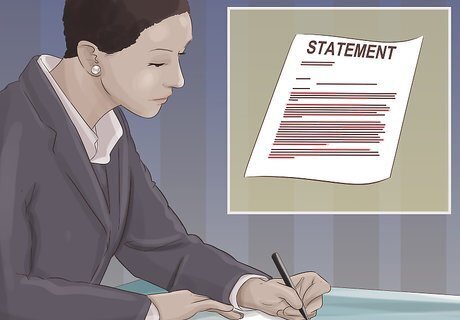
Quantify the importance of the statement. You may have an open-and-shut case that the person lied under oath with knowledge and intent. However, you still can't get a perjury conviction unless the false statement directly impacted the outcome or decision. To prove perjury, you need to find out to what extent the final decision relied on the false statement. For example, in court for a trial regarding an auto accident, a witness may say the car was red when it in fact was blue. The witness knew the car was red and intentionally lied because he believes red cars are unfairly discriminated against. However, the color of the car had nothing to do with the outcome of the case, so he couldn't be convicted of perjury.
Working with Law Enforcement
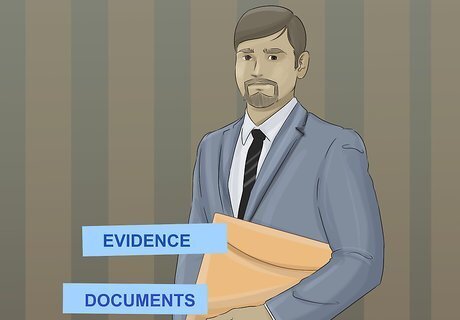
Gather the evidence and documentation you have. Before you go to report the perjury you've witnessed, organize the information you have about the false statement and any circumstances related to it. Your claim typically will be taken more seriously if you have significant evidence. If the statement was made in court, go to the clerk's office and ask for a transcript of the proceedings. If you have an attorney, they can help you with this. It may take a few weeks for the transcript to be compiled and printed, especially if the trial just ended. For written documents, get copies of any reports or other documents that prove the statement false. For example, if someone lied about their income on a government form, you might pull together check stubs or bank statements. If you don't have access to documents or other evidence, make a list of that evidence and what you believe it will show. You may have to explain why you can't access it or why you believe it will show the person is lying.
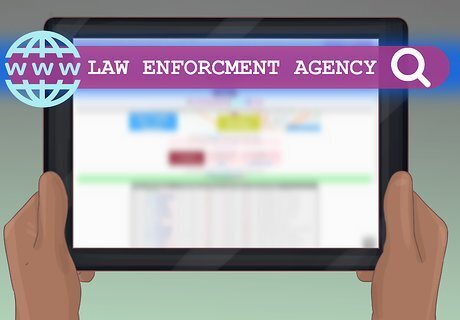
Identify the correct law enforcement agency. In most cases, if you want to report perjury you can start with your state's district attorney's office. Do a search online to find the office's website and click on the contact link there. You may be able to fill out a form online or talk to someone over the phone. However, if you have documents and other physical evidence, you probably want to go talk to someone in person.
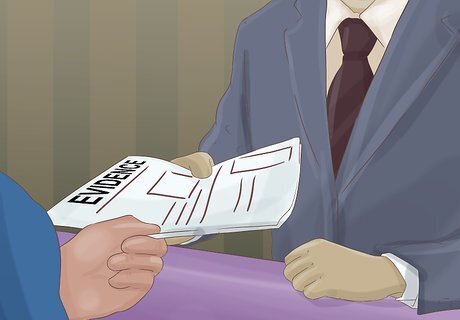
Present your evidence to a prosecuting attorney. The district attorney's office will evaluate your initial report and may assign it to a prosecuting attorney for further investigation. They will likely call you in to discuss the case with them and hand over any evidence you may have. When you're talking to the prosecuting attorney, stick to the facts. Try to avoid any assumptions or other statements you can't prove.

Provide a sworn statement to the prosecuting attorney. In many cases, if the prosecuting attorney decides to go forward with prosecution for perjury, they will need a sworn statement from you. Typically this will be a written statement, although it may be a videotaped interview in which you answer questions the prosecuting attorney asks. The prosecuting attorney can use this sworn statement to get warrants and subpoena documents or other evidence necessary to prosecute the person for perjury.
Bringing the Case to Court
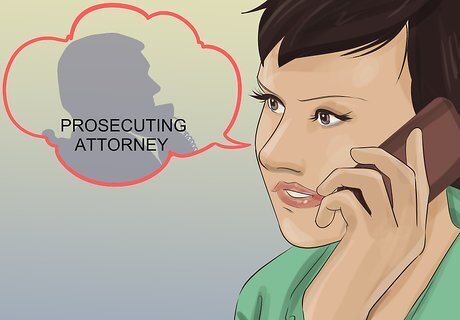
Contact the prosecuting attorney. If you haven't heard anything from the prosecuting attorney within a couple of weeks of your initial meeting, call them to follow up on your perjury report. You should also contact them anytime you find out new information or possible evidence that could assist in proving the perjury. If the prosecuting attorney has decided to take the case to trial, they may want to meet with you again to go over your testimony and what you know about the case. Prosecuting attorneys have a lot of discretion regarding whether to file charges in many matters. Perjury charges are seldom filed because of the difficulty in getting a conviction, so don't be discouraged if the prosecutor tells you they've decided not to go forward with it.

Go to court for the hearing. In most cases, people charged with perjury will make a plea deal with the prosecution and there will never be a trial. However, in some cases you may end up having to go to court for a criminal trial. If the prosecutor intends to call you as a witness, you will receive a subpoena requiring your attendance at the trial. Even if you don't have a subpoena, you can still go to the hearing if you want to observe. Call the prosecuting attorney's office to find out when it's scheduled.

Testify to the court. If you have evidence or other information concerning the perjury, the prosecuting attorney may call on you to testify in court. They will ask you questions under oath to establish on the record what you know about the false statements that were made. Generally, you want to keep your answers as brief and factual as possible. Answer the prosecutor's questions directly, and avoid adding information or going off on a tangent about something unrelated. Speak clearly and confidently, making sure your voice is loud enough for all in the court room to hear – especially if there isn't a microphone at the witness stand.
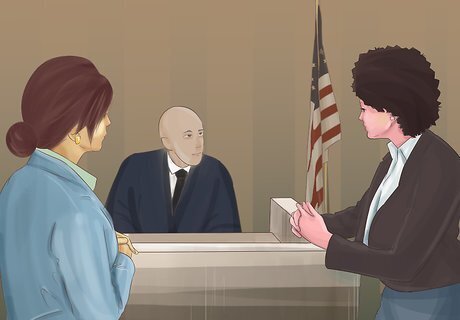
Answer questions from the judge and opposing counsel. After the prosecuting attorney finishes asking you questions, the attorney for the person charged with perjury will have the opportunity to ask you questions as well. The judge also may ask you questions to clarify statements you made. The defense attorney may come across as aggressive, or have an accusatory tone. Try not to let them intimidate you. Keep your answers to questions on cross-examination as brief and direct as possible. Don't provide additional information. For example, if the attorney asks you a yes/no question, answer yes or no only.














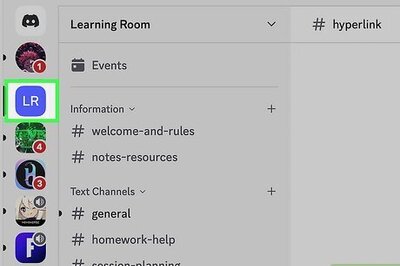





Comments
0 comment